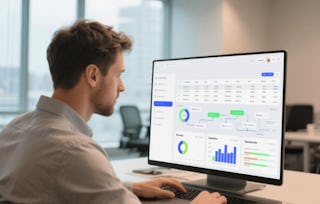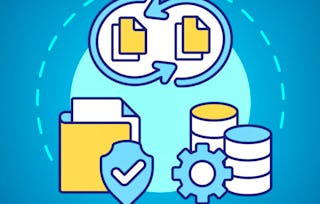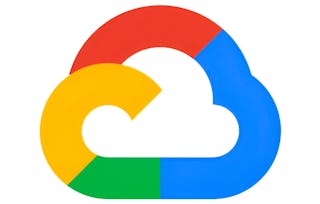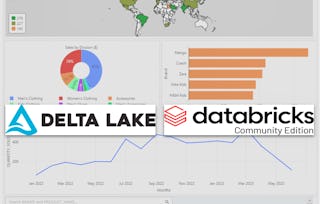Databricks is a cloud-based data engineering tool used to process and transform large amounts of data and explore the data through machine learning models. It combines data warehouses & data lakes into a lakehouse architecture.

Data Governance with Databricks

10 reviews
Recommended experience
What you'll learn
Learn to integrate AWS with Databricks.
Learn Data Lineage, Databricks Tags and Data Catalog in Databricks.
Learn to implement RBAC (Role-Based Access Control) in Databricks.
Skills you'll gain
- Data Validation
- Data Security
- Data Quality
- Amazon Redshift
- Amazon Web Services
- Personally Identifiable Information
- Data Cleansing
- Fraud detection
- General Data Protection Regulation (GDPR)
- Data Lakes
- Data Governance
- Role-Based Access Control (RBAC)
- Data Warehousing
- Databricks
- Data Integration
- Data Management
- Metadata Management
- Data Pipelines
- Extract, Transform, Load
- Skills section collapsed. Showing 9 of 19 skills.
Details to know

Add to your LinkedIn profile
12 assignments
See how employees at top companies are mastering in-demand skills

There are 4 modules in this course
Welcome to Week 1 of Data Governance with Databricks course. This week, you will learn about Introduction to Databricks on AWS. Additionally, you will learn about the benefits and features of Databricks and AWS Integration.
What's included
9 videos3 readings3 assignments1 discussion prompt
This week, we learn Data Classification Techniques including Data Lineage and Impact Analysis and Metadata Management and Data Catalogs. We will also learn about the Data Profiling and Quality Assessment, Data Cleansing Techniques and implement Data Cleansing Pipelines in Databricks.
What's included
8 videos1 reading3 assignments
This week, we will learn about RBAC, Data Access Control Models and Data security policies in Databricks. We will also learn how to implement RBAC in Databricks, and Data Security Best practices.
What's included
10 videos1 reading3 assignments
This week, we will learn about Data Governance in Data Pipelines including Data Lineage in Data Pipelines, ETL/ELT processes, Data Versiong and Change Data Capture. We will also about Data Governance Best Practices and Tools including Continuous Improvement of Data Governance Processes and implementation and applying best practices in Data goverance.
What's included
14 videos3 readings3 assignments
Instructor

Offered by
Explore more from Software Development
 Status: Preview
Status: PreviewBoard Infinity
 Status: Preview
Status: Preview
Google Cloud
Why people choose Coursera for their career

Felipe M.

Jennifer J.

Larry W.

Chaitanya A.

Open new doors with Coursera Plus
Unlimited access to 10,000+ world-class courses, hands-on projects, and job-ready certificate programs - all included in your subscription
Advance your career with an online degree
Earn a degree from world-class universities - 100% online
Join over 3,400 global companies that choose Coursera for Business
Upskill your employees to excel in the digital economy
Frequently asked questions
To access the course materials, assignments and to earn a Certificate, you will need to purchase the Certificate experience when you enroll in a course. You can try a Free Trial instead, or apply for Financial Aid. The course may offer 'Full Course, No Certificate' instead. This option lets you see all course materials, submit required assessments, and get a final grade. This also means that you will not be able to purchase a Certificate experience.
When you purchase a Certificate you get access to all course materials, including graded assignments. Upon completing the course, your electronic Certificate will be added to your Accomplishments page - from there, you can print your Certificate or add it to your LinkedIn profile.
Yes. In select learning programs, you can apply for financial aid or a scholarship if you can’t afford the enrollment fee. If fin aid or scholarship is available for your learning program selection, you’ll find a link to apply on the description page.
More questions
Financial aid available,


